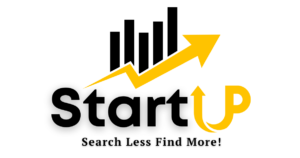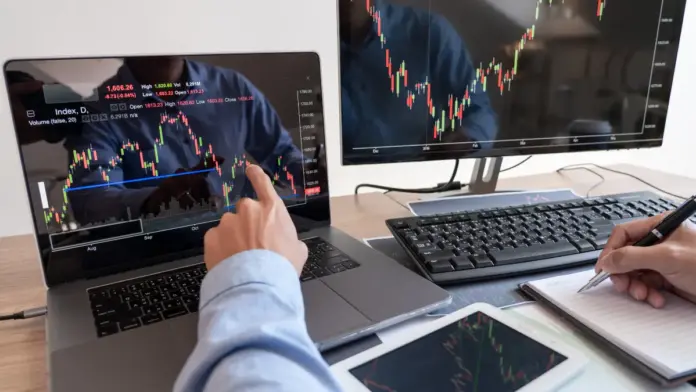Forex trading can be an incredibly rewarding endeavor. It offers the potential for sizable returns on investment in the global currency markets.
But for beginners, navigating the complex world of trading can be daunting. One of the most critical decisions they’ll make is choosing the right forex broker.
With a myriad of options available, each with its unique features, it’s essential to understand what to look for when selecting a broker that suits your needs. Read on for a comprehensive guide on the top 12 factors to consider when choosing the best forex broker for beginners.
Let’s get you started!
1. Regulation and Reputation
When it comes to selecting a forex broker, regulation should be your top priority. A regulated broker is one that operates under the supervision of a financial authority and must adhere to strict rules and guidelines.
The most reputable regulatory bodies include the US Commodity Futures Trading Commission (CFTC), the National Futures Association (NFA), and the UK Financial Conduct Authority (FCA). These bodies ensure that brokers are transparent and treat their clients fairly.
In addition to regulation, it’s crucial to consider a broker’s reputation before entrusting them with your money. Look for reviews and feedback from other traders to get an idea of their experiences with the particular broker.
2. Trading Platform
The trading platform is the software that enables you to access the forex market and execute trades. It’s vital to select a broker with a user-friendly and reliable platform, as it can significantly impact your trading experience.
Some of the essential features to look for in the best forex trading platform for beginners include charting tools, customizable interface, fast execution speed, and compatibility with different devices.
3. Range of Instruments
Forex trading involves buying and selling currency pairs. However, some brokers also offer other financial instruments such as commodities, stocks, and indices. These additional options can diversify your portfolio and potentially increase your profits.
Before choosing a broker, consider the range of instruments they offer and whether they align with your trading goals. This will also allow you to expand your trading strategies in the future.
4. Account Types and Minimum Deposit
Most brokers offer different types of accounts to cater to traders with varying levels of experience and investment capital. These account types may differ in terms of minimum deposit, leverage, spreads, and other features.
As a beginner, it’s best to start with a basic account with a lower minimum deposit requirement. This will help you get familiar with the trading process without risking significant amounts of money.
5. Demo Account
A demo account is a risk-free simulation of the real trading environment. It’s an excellent way for beginners to practice and test their strategies without risking any capital.
When choosing a broker, look for one that offers a free demo account with virtual funds. This will allow you to get comfortable with the trading platform and gain confidence before transitioning to live trading.
6. Leverage and Margin Requirements
Leverage is a critical aspect of forex trading as it allows you to control larger positions with a smaller amount of capital. However, it’s essential to understand the risks associated with leverage and choose the best broker to trade forex that offers reasonable leverage levels.
Moreover, brokers also have varying margin requirements, which determine how much collateral you need to maintain your positions. Ensure you choose a broker with margin requirements that align with your risk tolerance.
7. Customer Support
As a beginner, you may have questions or encounter issues with your trading account. It’s crucial to choose a broker that offers excellent customer support to assist you when needed.
Consider the availability of customer support, including their response time and the methods they offer for communication. Some brokers have 24/7 live chat support, while others may only have email or phone options during business hours.
8. Educational Resources
Education is crucial for beginners to understand the complexities of forex trading fully. Some brokers offer a wide range of educational resources, such as tutorials, webinars, and e-books.
These materials can help you learn technical analysis, fundamental analysis, risk management strategies, and other essential concepts that are necessary for successful trading. Look for a broker that provides comprehensive educational resources to support your learning journey.
9. Transaction Costs and Spreads
Forex brokers earn their profits through transaction costs, which include spreads, commissions, and other fees. These costs can significantly affect your trading performance and overall profitability.
It’s essential to compare the transaction costs of different brokers before making a decision. Look for brokers that offer competitive spreads and low or no commission fees to minimize your trading expenses.
10. Deposit and Withdrawal Methods
Before choosing a broker, consider the deposit and withdrawal methods they offer. Some brokers may have limited payment options, which can be inconvenient for certain traders.
Additionally, take note of any fees associated with deposits and withdrawals. It’s best to choose a broker that offers multiple payment methods with no or low transaction fees.
11. Risk Management Tools
The forex market is highly volatile, and risk management is crucial for traders to protect their capital. Some brokers offer tools such as stop loss orders and limit orders to help minimize potential losses.
When selecting a broker, consider the risk management tools they provide and how you can use them to your advantage. This will also demonstrate the broker’s commitment to helping their clients manage risks effectively.
12. Transparency and Accountability
Transparency and accountability are crucial qualities to look for in a forex broker. You must choose a broker that is transparent about their trading practices, fees, and policies.
Additionally, consider how the broker handles client funds and if they have any insurance or protection measures in place. This will give you peace of mind knowing that your investments are secure with a reputable broker.
In conclusion, choosing the right forex broker is a crucial step in your trading journey. It’s essential to consider these factors and conduct thorough research before making a decision. Remember, the right broker can make all the difference in your success as a beginner trader. Happy trading!
Choose the Best Forex Broker for Beginners
Selecting the best forex broker for beginners is a crucial decision that can greatly impact your trading experience and success. It’s essential to consider the factors discussed in this article. That way, you can find a broker that aligns with your trading goals.
With the right broker by your side, you’ll be on your way to becoming a successful forex trader in no time! Start exploring your options and choose wisely.
For more articles, visit our blog.



